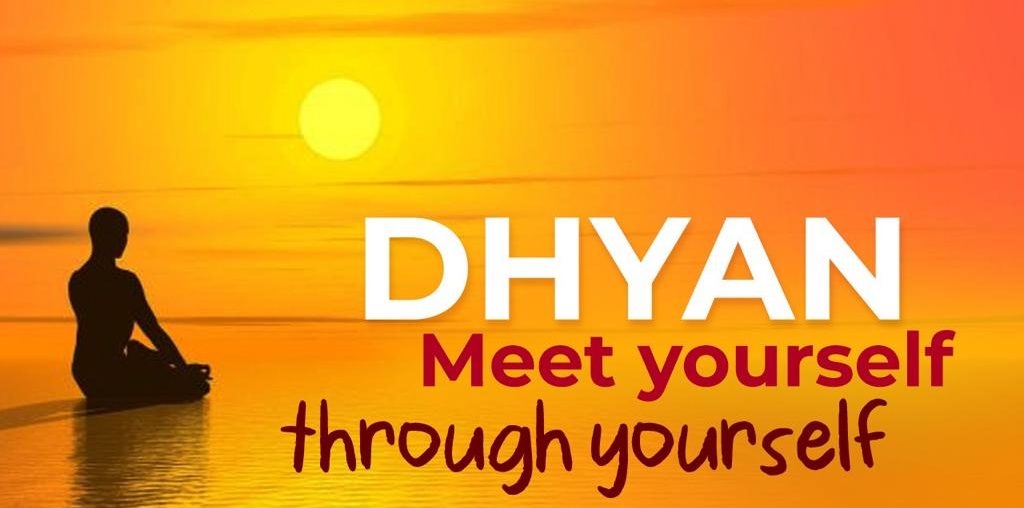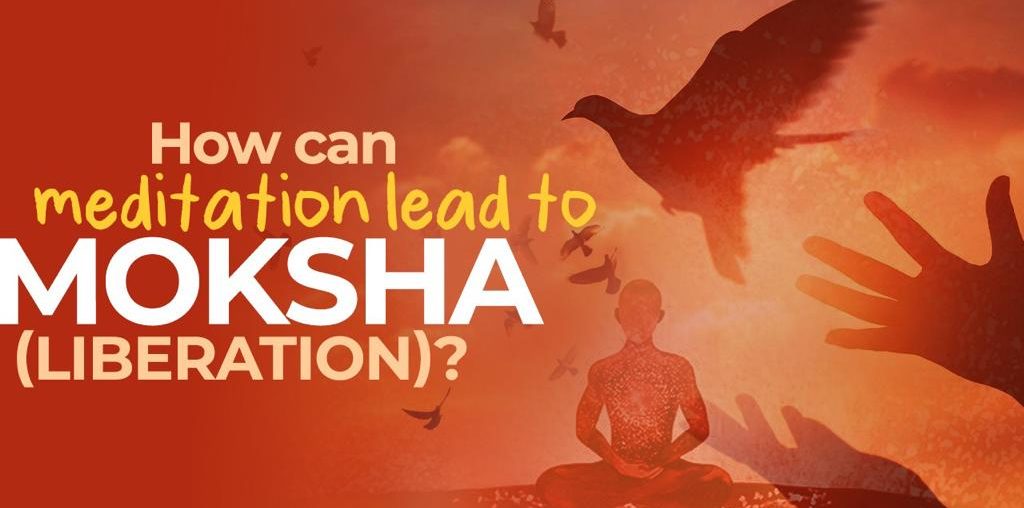Why should I engage in Dhyan? We can meet ourselves through Dhyan. We need to introspect and find ourselves. Dhyan is an experiment to search for ourselves, unite with our inner self, and care for ourselves. We meet everyone on the outside, but we have barely met ourselves. Dhyan is a process to meet us through us.
During the process of soul purification, Bhagwan Mahavir did just one process – Dhyan. We can experience ourselves in Dhyan. When we reach the final state of Dhyan, we can leave everything that is not “Ours” (Swa), and this step is called “Appanam Vosirami.”
There are three steps in Dhyan.
- Thanenam – Stabilize the Body
- Monenam – Observe Maun (Speechless)
- Janenam – Calm our mind, devoid of thoughts
Dharma is a process to control our emotions and desires. But does this happen? We engage in a variety of Dharma Kriyas. However, we cannot control our emotions or desires despite engaging in dharma. Hence, we cannot achieve the level of spiritual satisfaction that we expect. Dhyan is this process to develop the right understanding.
We cannot learn Dhyan but can slowly master it while practicing it repeatedly. Today a majority of us have low tolerance levels. Aaveg (anxiety), Udveg (irritation), and Chanchalta (restlessness) have increased because of which even a small situation can agitate our mind, and we consider others as the reason for this disturbance. That is why we need to increase the quality of self-control through Dhyan.
- We need to find ourselves, through us, during Dhyan.
- We need to experience the bliss within us through Dhyan.
Bhagwan Mahavir resided in the luxury of a palace, as a prince with his family, amid all worldly comforts. However, he introspected that he did not want to depend on others for his happiness and pleasure. He wanted to derive true happiness from his inner self. He wanted to be the sole reason for his bliss, and Bhagwan achieved all of it through the process of Dhyan.
This is why Bhagwan Mahavir did not have any material possessions, not even clothes to cover the body, no food or water, or any friends or family. He did not have anyone around him, yet He was smiling with radiant peace. He experienced peace within himself, a unique kind of happiness.
Bhagwan Mahavir did not have any means to protect himself. However, he felt secure because He used to continuously experience “Vitragta” – a sense of detachment. He was engaged in the process of Dhyan. Vitragta means emotionless love. It is a process to nullify all our emotions. The moment we become free of all emotions, we experience infinite knowledge, love, and compassion. We experience love for every living being in the Universe. Every Tirthankar Bhagwan has reached this state of Vitragta through the practice of Dhyan.









